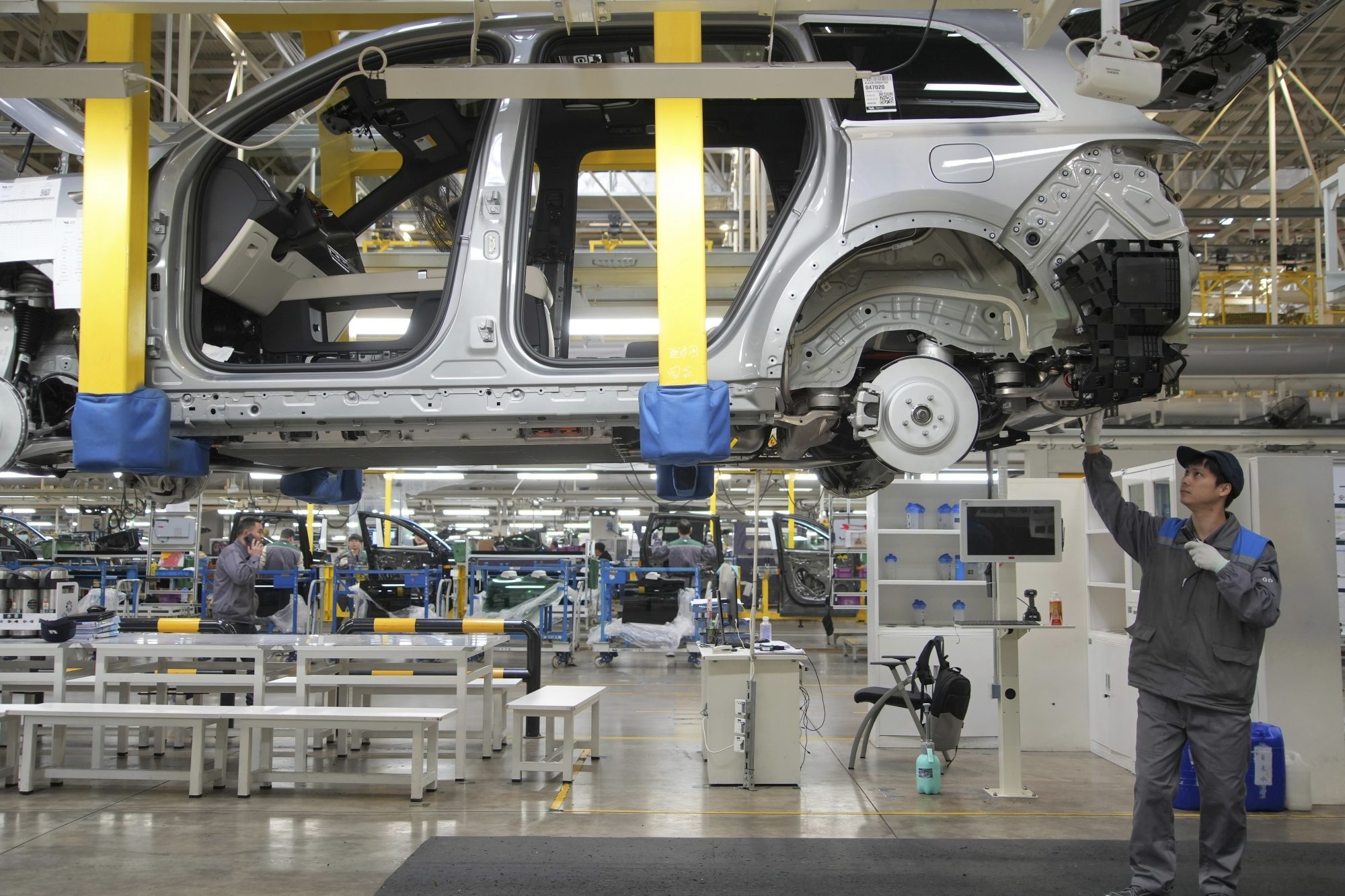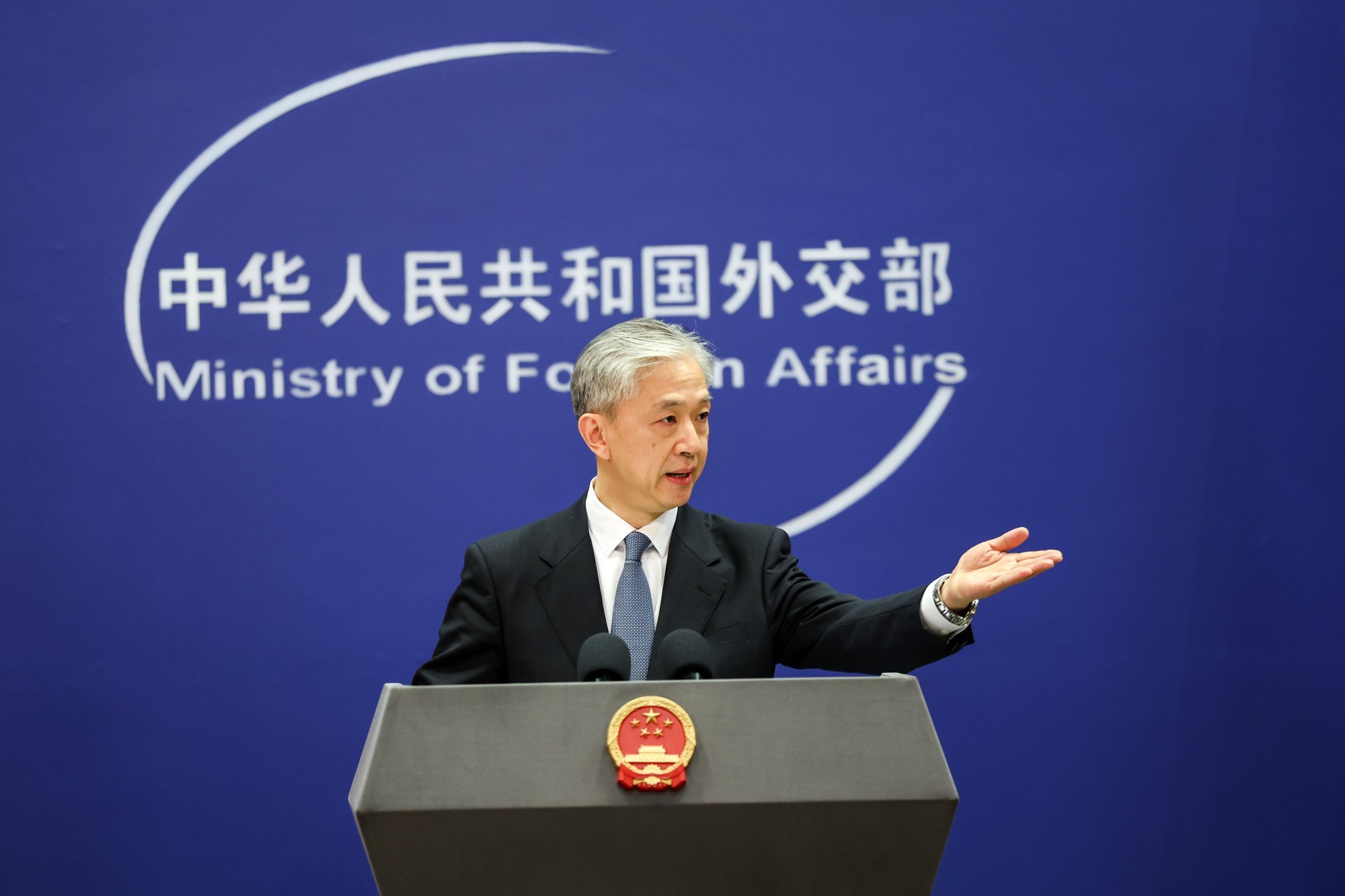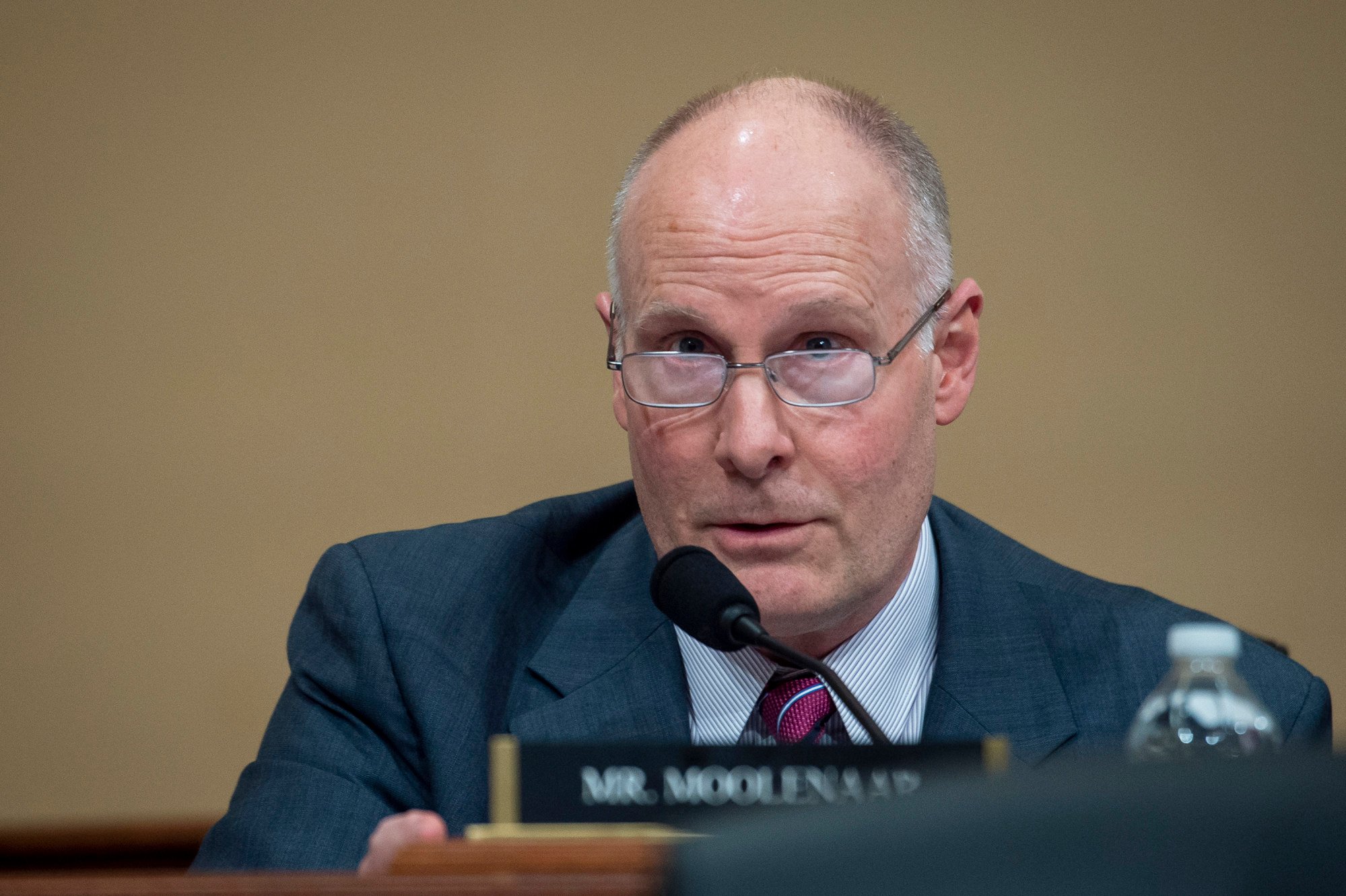
Biden says new China tariffs are needed to protect US industries from companies subsidised by Beijing
- The US president defends his plan to impose stiff new tariffs on Chinese EVs, advanced batteries, solar cells, steel, aluminium and medical equipment
- Biden also gives his action a political edge, criticising Donald Trump, his predecessor and challenger for re-election, for failing to lift US exports and boost manufacturing
US President Joe Biden accused Beijing on Tuesday of sticking with unfair trade practices that had prompted his predecessor Donald Trump to launch a trade war against China – and asserted that the former president failed to follow through on promises to fix the problem.
Speaking from the White House after announcing new tariffs he has ordered on Chinese electric vehicles, semiconductors, aluminium, steel and other imported products, Biden vowed that “the future of electric vehicles will be made in America by union workers”.
“For years the Chinese government has poured state money to Chinese companies across a whole range of industries … pushing Chinese companies to produce far more than the rest of the world can absorb, then dumping the excess products onto the market at unfairly low prices, driving other manufacturers around the world out of business,” he said.
Under the plan, following a public comment period to be announced by US Trade Representative Katherine Tai’s office next week, tariffs would rise to 100 per cent from 27.5 per cent on Chinese EVs and to 50 per cent on semiconductors and solar cells produced in the country. Tariffs on lithium-ion vehicle batteries and battery parts would rise to 25 per cent.
Biden’s move is the latest chapter in a trade war started by Trump in 2018 to address restrictions on access to China’s market, including policies that force foreign companies operating in the country to transfer technology to domestic firms.
Both men, who are running against each other this year in a rematch of the 2020 presidential election, have made talking tough on China a feature of their campaigns.
In his speech from the White House, Biden took aim at Trump’s efforts to counter China nearly as much as he blamed Beijing for the loss of American manufacturing jobs.
“My predecessor promised to increase American exports and boost manufacturing, but he did neither,” Biden said.
“He signed a trade deal with China. They’re supposed to buy US$200 billion more in American goods. Instead, China’s imports from America barely budged.”
Biden was referring to a phase-one deal that Trump brokered with China in 2019, and signed in January 2020, ending threatened tariffs on around US$155 billion worth of Chinese imports that were set to take effect at the end of that year, and halving tariffs to 7.5 per cent on another US$120 billion in goods.
But the deal kept in place the 25 per cent import taxes on US$250 billion worth of Chinese products.
In exchange, China pledged to buy, over two years, at least US$200 billion more in American goods and services than it did in 2017, including about US$40 billion in agricultural goods.
US exports to China rose from US$106 billion in 2019 to US$125 billion in 2020. The exports have ranged between US$148 billion and US$154 billion since.
The US imported US$504 billion worth of Chinese goods in 2021 and US$433 billion in 2020, compared with US$449 billion in 2019, according to US Census data.
These imports rose again to US$536 billion in 2022, before dropping to US$427 billion last year.

“And now,” Biden continued, “Trump and ‘MAGA Republicans’ want across-the-board tariffs on all imports from all countries if reelected.
“Well, that would drive up costs for families on an average of US$1,500 per year, each year.”
Underscoring his political message, Biden was introduced by Jesse Gary, the chief executive of Century Aluminium, which has facilities in the US states of Kentucky and South Carolina, and Roxanne Brown, international vice-president at large for the United Steelworkers union.
The Biden administration’s top economic officials, including Commerce Secretary Gina Raimondo and Treasury Secretary Janet Yellen, had been signalling the tariff action for weeks, insisting that the coming measures would be as targeted as possible and tailored to avoid a broader decoupling of the two economies.
Tai cited the need “to encourage further elimination of the PRC’s technology transfer-related acts, policies and practices” in her announcement about the new tariffs earlier on Tuesday.
Beijing’s Ministry of Foreign Affairs spokesperson Wang Wenbin said that China would take “full necessary measures to safeguard its legitimate rights and interests”.
And Liu Pengyu, spokesperson for the Chinese embassy in Washington, called Biden’s allegations of subsidies, price distortions and overcapacity a “false narrative”.
Liu attributed China’s EV prowess to its “mega markets, complete mature industrial system, human resources and also strong investment in research and innovation”.
Liu said that 87 per cent of the electric vehicles produced in China last year were sold domestically, and that only 0.8 per cent of the total exports were sold in the US.
He also said that EVs produced in China by the American automaker Tesla accounted for nearly one-third of China’s total electric car exports last year.

Sarah Bauerle Danzman, a resident senior fellow at the Atlantic Council in Washington, said that the new tariffs would be crucial for the success of “several large strategic bets [Biden has made] in industrial policy around semiconductors, EVs, solar, and infrastructure investment”.
“As the administration has sought to on-shore productive capabilities throughout these supply chains, one looming concern has been overcapacity and the potential for gluts of cheap imports shuttering newly built US plants,” Bauerle Danzman said.
“In many respects, these tariffs are preventive measures to guard against that possibility,” she added. “The administration may also be trying to signal to the private sector that any investments they make in on-shored critical supply chains will be protected from wild price swings.”
Biden is under pressure to show that the new measures his administration has championed – including the Chips and Science Act, to bring semiconductor manufacturing back to the US, and the Inflation Reduction Act, his green energy legislation – are bearing fruit.
The Inflation Reduction Act also provides incentives for products built in the US with inputs sourced from countries that Washington is trying to align with on supply chains.
To get the maximum US$7,500 tax credit for new and US$4,000 for used electric vehicles, at least 40 per cent of the minerals used in EV batteries – including cobalt, lithium, graphite and nickel – must be extracted and processed in North America or at least not from a “foreign entity of concern”.
Reactions from Trump’s Republican Party largely criticised the tariff action’s timing and scope.
Representative John Moolenaar, a Michigan Republican and chair of the House Select committee on China, said that “this tariff action is both overdue and directly in line with bipartisan recommendations in the select committee’s economic policy report in December”.

“We must act with urgency to further reduce dependence on the PRC and prevent a surge in Chinese exports from decimating US industry and workers and undermining our national security,” he added.
Senator Marco Rubio, the Florida Republican who is one of the most vocal congressional critics of China, went further, slamming Biden for not including tariffs on gas-powered Chinese vehicles.
“Your exclusive focus on Chinese EVs ignores China’s biggest threat to the US auto industry,” Rubio said in a letter to Biden. “Setting aside your administration’s radical climate agenda, it is still true that today – in the real world – a vast majority of American-made cars run on gas.”
Additional reporting by Igor Patrick in Washington

